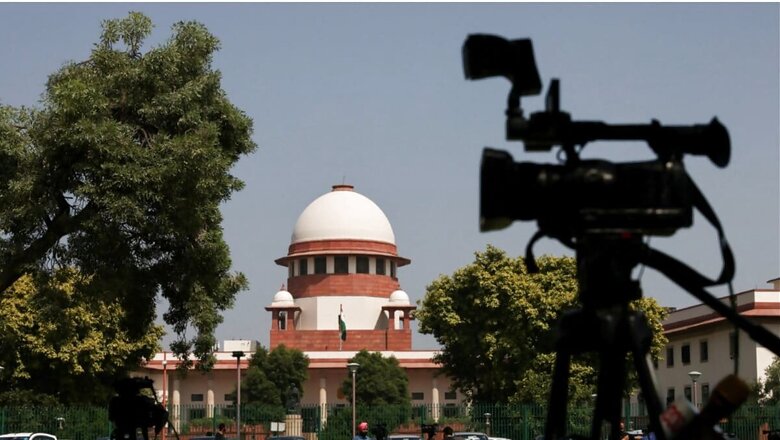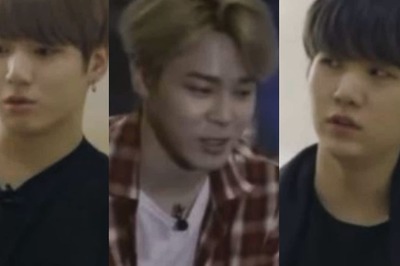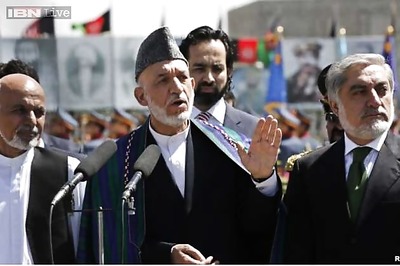
views
Terming hate speeches a “vicious circle”, the Supreme Court on Wednesday said these will end the moment politics and religions are separated and politicians stop using religion in politics.
The apex court said people from remote areas and every nook and corner used to gather to hear speeches of former prime ministers Jawaharlal Nehru and Atal Bihari Vajpayee.
A bench of justices KM Joseph and BV Nagarathna said hate speeches are being made by fringe elements and people should restrain themselves from doing so.
“Major problem arises when politicians are mixing politics with religion. The moment politics and religion are segregated, this will end. When politicians stop using religion, all this will stop. We have said in our recent verdict also that mixing politics with religion is dangerous for democracy,” Justice Joseph said.
The top court’s observations came while hearing a contempt petition against various state authorities including Maharashtra for failing to register FIRs against those making such speeches.
When Solicitor General Tushar Mehta pointed out a derogatory speech made in Kerala by a man against a particular community and questioned that petitioner Shaheen Abdullah has selectively pointed out the incidents of hate speeches in the country, this triggered sharp exchanges between the court and Mehta.
He also pointed out a statement made by a DMK party leader and said why has the petitioner’s counsel not made him and those states party in the contempt petition.
The bench referred to those speeches and said “every action has an equal reaction” and emphasised, “We are following the Constitution and orders in every case are bricks in the structure of rule of law. We are hearing the contempt petition because states are not taking action in time. This is because the state has become impotent, powerless and does not act in time. Why should we have a state at all if it is silent?”
The hearing of the contempt petition saw some strong observations from the court in which it said, “Hate speeches are like a vicious circle. One person will make it and then another will make it. When our constitution was founded, there were no such speeches. Now there are cracks coming up in the idea of fraternity. There has to be some restraint. Some sought of mechanism needs to be developed by the state so that we can curb this kind of statements.”
Additional Solicitor General SV Raju, appearing for the Centre, said that according to the law laid down by this court, if there is a cognizable offence made out, state cannot object and is bound to register the FIR. The top court posted the matter for further hearing on April 28 and sought response of the Maharashtra government on the plea.
On Tuesday, the top court had said abjuring hate speech is a fundamental requisite for maintenance of communal harmony in the country, and asked the Centre what actions have been taken after the lodging of FIRs in hate speech cases.
Observing that merely registering complaints is not going to solve the problem of hate speeches, it reminded the Centre on the need to take action against persons making such statements.
Holding that the Constitution envisages India as a secular nation, the top court on October 21 had directed the Delhi, Uttar Pradesh and Uttarakhand governments to come down hard on cases of hate speech, and registering criminal cases against culprits without waiting for a complaint to be filed.
(With PTI inputs)
Read all the Latest India News here

















Comments
0 comment